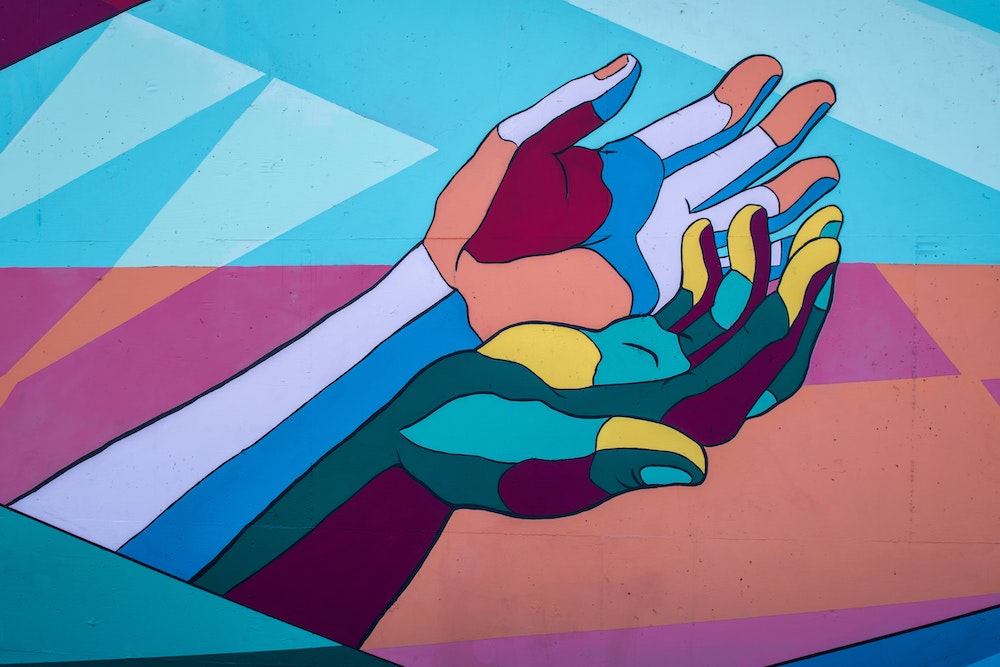A Portrait of the Mother as Love on Fire: Death, Forgiveness, and Abolition (part III)
This is the third in a three-part series. You can read the previous installments here and here.
III. Purgatory
December 2019**
I found out around Christmas that Charlie* was transferred to a psychiatric hospital. I learned that just means a judge deemed him unfit to stand trial right now and he’ll be held in the hospital until his mental health improves enough to stand trial. That could be a week or years. Part of me feels very sorry for him. He’s made awful choices, but he also seems like he’s been raving for months, from what I’ve heard, and I imagine the distress of his son’s death and his role torments him. It’s an easier picture to swallow than that of his wife, who seems to have swept the entire thing under the rug and acts put-upon when the idea of her involvement is brought up.
If Victoria has grieved the loss of Ryan for one moment, it was invisible. Surely, she must feel a pang. Imagine holding even a subconscious memory of your dead child inside you and not allowing yourself to express any sorrow. Maybe it eats her alive.
None of the rest of us are Ryan’s mother, but his death has stretched and crushed us. It’s hard to believe we’re still far from the one-year anniversary. I’m eager to say goodbye to this calendar year and increasingly staunch about creating a life for myself and my family that is insulated from this just dragging on and on.
Jon and I struggle to cope differently. At home we’re a team, but when his family is involved, I choose to be not in the family. He told me that no matter what he says about his parents, I get angry, so finally I said it would be best if he didn’t say anything about them to me. Still, we struggle together with Jon’s brothers and their wives to talk about anything else for months and months and months. The exhaustion of it creates an inevitable need for distance, silence, rest from each other.

I want to move on, but the crumbling of a family is something that will hurt indefinitely, particularly for Jon. When I talk about his family now, there is no upbeat note to end those conversations on. It’s just a cliff.
I wonder what the sordid drama would be had Ryan not died. His future was never rosy, and that has always been infuriating. The beam of my fury is strong and steady like a lighthouse and it falls intermittently on the human condition and then those who don’t take responsibility for their part in it.
In late Spring of 2020, the court in North Dakota called to ask me to be a witness in Charlie’s trial. I was reminded of how much I have not managed to escape this family. The attorney was eccentric, but kind. He brought me considerable comfort in acknowledging that in cases like Ryan’s, there are tertiary victims. I didn’t realize how hungry I was to hear that the pain I felt, removed as I am, was part of the crime. And that what is broken might never be put back together. Apart from two sisters-in-law to whom I’ve clung, our family is not “figuring it out together,” at least not “together” and not coherently. We just…are. We’re still here, so imperfectly and unhealed.
May 2020
It’s been over a year, and the anniversary of death passed undramatically.
On Mother’s Day, I woke up thinking of Victoria and Joan. I felt insecurity about my own parenting. How can all three of us be mothers at once? Motherhood does not save itself for “worthy” vessels.
I know that as human beings, the three of us are of equal and great worth. But I am a better mother. I don’t know all the personal demons that Victoria and Joan are facing, but they didn’t do their best as mothers. I’m not the mother I want to be most days, but I’m actively trying to be a good mother, and that means more to me than ever now.
Why did Joan favor Victoria and pit that version of love against her other children? She took never giving up on Victoria to mean never admitting fault. But that didn’t save Victoria and it destroyed every other relationship Joan had with her family. I refuse to accept that that was the best Joan could do. She had so many chances to do better. She still does, and she won’t take them.
They say that when a child is born, the mother is undergoing a personal birth too. When a child dies, does the mother undergo death? Like Jesus descending into hell, but the mother does not conquer the grave.

A Resurrection of Sorts
Following the murder or George Floyd, I attended the first protest of my life. I carefully followed the directions I read on Instagram about not wearing identifying clothing and not filming other protestors without consent. I was scared, though I was not in danger. I kept showing up, while Jon watched our boys at home. Most of the other protestors were halfway between my children’s ages and my own. At one protest, I held a sign someone else had painted and misspelled. A smug bystander pointed out the misspelling and I said, “I didn’t write this.” I felt in my heart that I betrayed protestors by throwing something as trivial as spelling at their feet the moment I was criticized.
The group I kept attending was organized by prison abolitionists, and I started attending their Zoom meetings. I was caught comically off-guard at their suggestion that matters of incarceration were related to racism. But I was committed to being a good listener, and I began to learn a lot about incarcerated life and what communities with high rates of incarcerated loved ones are up against. I signed up to be a pen-pal with several incarcerated people.
One woman who wrote to me is the mother of three. She’s incarcerated for aggravated assault. She didn’t say why she beat the shit out of someone with a bat, but she did say her fourteen-year-old was taken from her because her incarceration made it impossible for her to provide a home for that daughter. Her younger children had already been adopted by separate families prior to her incarceration. She wrote, “as long as my son’s good, I’m okay. I know the Lord’s going to make a way for me to be with my kids again.”
The penpal I’ve grown closest to is a father of three adult daughters. I don’t know very much about him as a father, but as a man, he is a sponge for love. He asks me to send him letters on colored paper and then he shows them off to the other guys, who say, “someone must really love you.” He wanted me to tell “the internet” that “true feelings aren’t shown with words, but only in deed.”
I don’t know whether my two friends have loved their children the best that they can. Undoubtedly their love is imperfect, as is mine. Undoubtedly their children have been hurt by their choices. But I see that both incarcerated parents understand love. I hope there’s a stranger out there in the world who can write to Victoria with an open heart and recognize love in her. I know it must be in there.
When I first joined the abolitionists, my overriding indignation was about the living conditions in prisons. Especially at the height of COVID-19 in the US, there were reports from the local prison that inmates did not have clean water with which to wash their hands. When an inmate died, the body would not be removed for some time. Later I read academic reports and letters from my new friends that prisoners are given magot-infested food or food labeled as “for horses.” Every scale of abuse imaginable is present, down to intentional removal of all color from prison as a tactic to suck every drop of a life worth living away as punishment. It’s sadistic.

After my initial shock at the physical conditions, I began to rethink the concept of punishment in general. I kept reading just as I kept living my life as a mother, a friend of incarcerated people, and a family member to incarcerated people. I’d never confronted the idea that a desire to punish is not the same as a desire for justice. Slowly, this has affected the way I think about Victoria and what happened to our family.
I don’t have fully formed answers and I still have unsettling emotions. But now I also have a framework for recognizing and valuing the sanctity of the lives of those who have transgressed. I never guessed that my personal healing from a personal family trauma might take this public turn to abolition. Nor is it a complete healing. Sadness and anger still live with me.
I don’t want Victoria free in the world at this point, even though I don’t believe she should rot in prison. I can’t have a relationship with her or Charlie or Joan, even though I have compassion for them and I don’t desire their punishment. They already live in hell, I don’t need to add to it. I want to see them resurrected. I can’t involve myself directly in their stories right now, but I can work to chip away at systems that criminalize illness, and I can work toward systems that create room for restoration.
I love the movie Stranger Than Fiction with Emma Thompson. She plays a writer trying to help a man determine what sort of life he’s living in literary terms. A comedy? A romance? A tragedy? I’ve wondered at times: at what point is a life determined to be a tragedy? If your best attempt at love resulted in death, you might say your life is tragic. Sometimes I’ve imagined life is a tragedy from the moment you enter the world. I’ve been a pessimist since conception. But abolitionists are radical optimists. No matter the evidence of tragedy, we keep going as if victory is possible.
When I’ve encountered tragedy, it hasn’t typically assumed the shapes I dread. It hits you from the side. Then it hits you again. It can be a bruise more than a gash. After Ryan’s death, I survived the first week. I survived the second week. By the fourth week, I felt happier than I had in a long time. I felt like I could survive unlimited tragedy, though I wasn’t wishing for it. And I felt grateful for things that weren’t tragic.

I’ve found that the more tragedy I suffer, the better equipped I am when I encounter tragedy again. Not because of toxic positivity, but because of resilience. I don’t think that the relative peace I’ve found since Ryan’s death is settling or denial, I think it’s coping and healing.
What about people who aren’t allowed to heal? I think of prison as a purgatory where you’re punished forever without the chance to atone or for personal redemption. That is, if you’re even incarcerated justly (if that even exists) in the first place. Victoria needs healing and treatment more than she needs punishment. But we have no systems for healing the bad mothers. The degree to which I’ve healed from Victoria’s actions are partly internal, yes, but also a function of my freedom to go to therapy, remove myself from situations that compounded trauma, and the support of my community. We strip prisoners of all of that and just wish on a prayer that they’ll come out reformed. And if we can’t find it in ourselves to even hope that, we just kill them.
Part of forgiveness is letting go of your right to an apology. This definition helps me because it focuses on what I can control. I can still work toward justice and hold people accountable, but my part is done in the forgiving, and I don’t break my own life by waiting on hearts that might never change. There’s a lot of hurt and rage before there is forgiveness. And forgiveness doesn’t mean that I’m never reminded of the hurt that can rise up just below my clavicle at moments unannounced. I used to hope for restitution; an acknowledgement of all the red flags waved along the path to Ryan’s death that we pointed out and that were ignored. Thinking of those flags, like a runway landing, made me feel that his death was preventable. But it’s a thing that happened and will never unhappen. Sometimes I try to make sense of it, and sometimes I don’t.
When I started writing this almost two years ago, I wanted a record to explain why I gave up on a family, which is something you’re not supposed to do. But now I don’t see it as giving up. I’m not a saint in this story. Ryan doesn’t come back to life in this story. Our family hasn’t gotten back together. But my life is not yet a tragedy, and I hope I am a better mother in the end.
*All names have been changed.
**Dated areas correspond to journal entries I made over the past years, but are interwoven with recent reflection and/or backstory.





